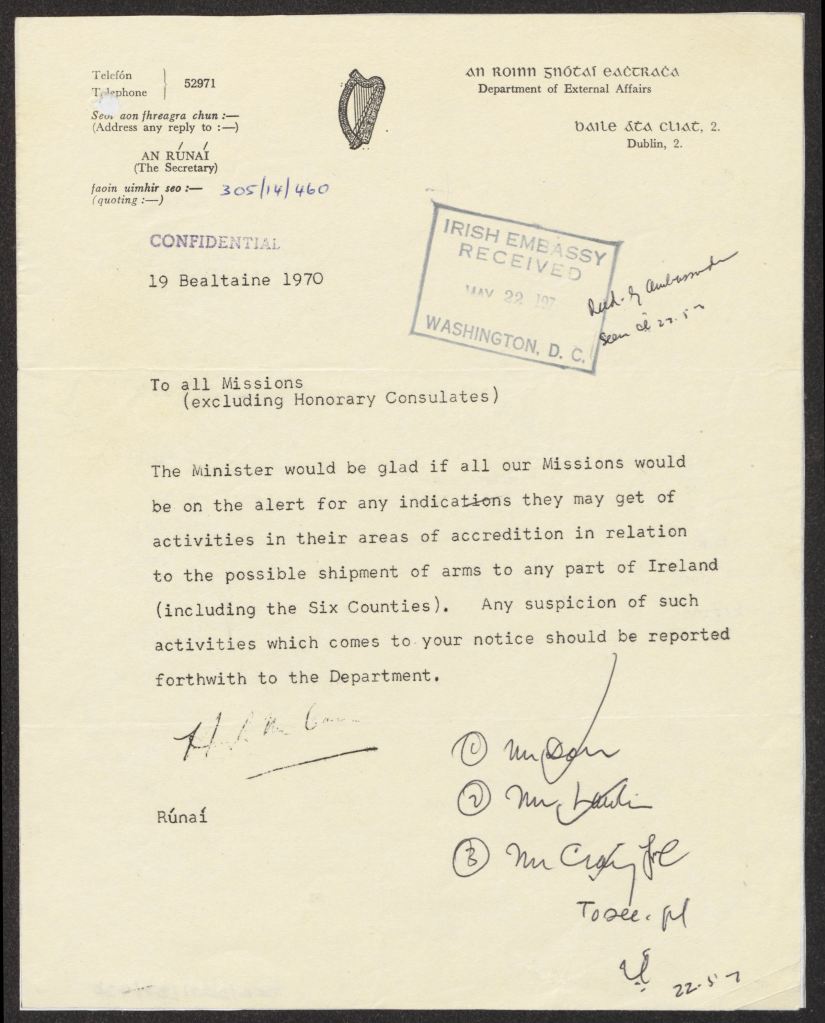- 3 Min read
Exploring Irish history through diplomacy with DIFP volume XIV

The latest volume in the Royal Irish Academy’s Documents on Irish Foreign Policy series, covering the years 1969 to 1973, was published in December 2024. Documents on Irish Foreign Policy (DIFP) is a partnership project of the National Archives, the Department of Foreign Affairs and Trade, and the Royal Irish Academy.
This collaboration aims to make the history of Irish foreign policy accessible to all and promotes public engagement with Ireland’s international relations by published editions of original documents, mostly retained in the National Archives, where the project is physically based. Established in 1997, the partnership has resulted in the publication of numerous volumes of historical documents, along with numerous exhibitions and ancillary projects. These ensure that significant moments in the history of Ireland’s foreign relations are made more widely accessible.
Learn more about this fascinating project in our Collaborations section and explore the open-access volumes in the series at www.difp.ie.
Documents on Irish Foreign Policy Vol. XIV: 1969-1973 offers a comprehensive look at Ireland’s diplomatic history during a tumultuous period, one dominated by the outbreak and early years of the ‘Troubles’ in Northern Ireland, and the ways in which Jack Lynch’s Fianna Fáil government responded to onset of the crisis and key events like Bloody Sunday. The volume also explores Ireland’s entry into the European Economic Community (the EEC, now the European Union) in 1973; Ireland’s policies at the United Nations; the ending of the Biafran War; relations with the Nixon administration in the United States, especially in relation to the long-standing dispute with the United States over landing rights for transatlantic flights at Dublin; the proposed expansion of Ireland’s diplomatic and trade relations into Eastern Europe, the Soviet Union and Asia; the emergence of a development aid policy, along with a more pronounced interest in human rights; and Ireland’s wider relationships as a neutral, though generally western-aligned state against the backdrop of the Cold War.
Some of the documents published in the volume form the basis of a series of articles for RTÉ Brainstorm written by the DIFP staff, on subjects as diverse as Bernadette Devlin in the US in 1969(opens in a new tab), an Irish diplomat ‘dining for Ireland’ in 1970s London(opens in a new tab), the prospect of the Defence Forces making incursions into Northern Ireland(opens in a new tab) along with the views of Irish officials and politicians on the Ian Paisley.(opens in a new tab) and espionage in the early years of the ‘Troubles’.(opens in a new tab)
Listen back to this special edition of The History Show on RTÉ Radio 1 on DIFP XIV.(opens in a new tab)